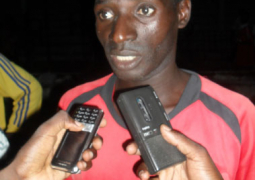According to the architects of this laudable project, the EMPAS Integrated Poultry Scheme is now operational with a hatchery capacity of 100,000 day-old chicks per month for local poultry farmers, both layer and broiler. It also has a broiler farm with a production capacity of 30,000 birds per month. And the farm serves as a Centre for Excellence and training of farmers in the out-grower scheme.
This project, which also houses a processing and packaging plant with a capacity of 1,500 birds per hour, is a laudable initiative and a clear manifestation that as Gambians, as Africans and as a developing nation we can produce what we eat as well as sell to the world to generate the wealth we need to grow our economy, and create more investments and job opportunities for our people, especially for our youth who scavenge for jobs and see them not.
The processing plant, according to reports, will meet the highest standards of food hygiene and can process up to 15,000 birds per day. This is a tall order our indigenous investors would overcome, if the ground is properly leveled for them to operate and serve the nation and beyond.
All what is needed is the consistent support from the government and the people of The Gambia. Although the government has given a great deal of push to the establishment, including incentives such as tax holiday, consistent leg up is invariably needed to keep it fit in the face of international competition of such concerns and products in the markets.
“EMPAS seeks the support of the government to commence a 500-hectare corn farm as catalyst for a corn out-grower scheme, since poultry is the conversion of corn to protein and The Gambia is suitable for corn growing,” the chairman of EM-Holding Company has said.
As the EM-Holding company chairman stated, the major challenge to a sustainable, local poultry industry is the continuous ‘dumping’ of products in Africa at export prices well below the production cost in Europe. This is evidently an anomaly considering the distance, sea freight, freezing, port charges and handling costs.
This is why the company captain is pleading with the government to continue to give them the necessary support to bail out the Gambia from imported chicken, as the government has done to nurture other emerging agro-industries, such as the stoppage of importation of flour, the curtailment of the importation of onions and now “we seek that Gambia can stop the importation of chicken”.
Empas is taking up the challenge that they can produce the chicken Gambia needs. All they too need is the stoppage of chicken importation into the country to pave the way for them.
Dumping - the export of goods at a price less than their normal value, generally at less than in the domestic market or third country markets, or at less than production cost - is the game being applied by others to destroy emerging industries in Africa.On the other hand, protectionism - the actions of a government to help its country’s trade or industry by taxing goods bought from other countries - is the tactic being used to nurture one’s industry and economy.So the ball is in the court of the government. Empas Poultry Project is ready to deliver.
“If
the other fellow sells cheaper than you, it is called dumping. ‘Course, if you
sell cheaper than him, that’s mass production.”
Will
Rogers




